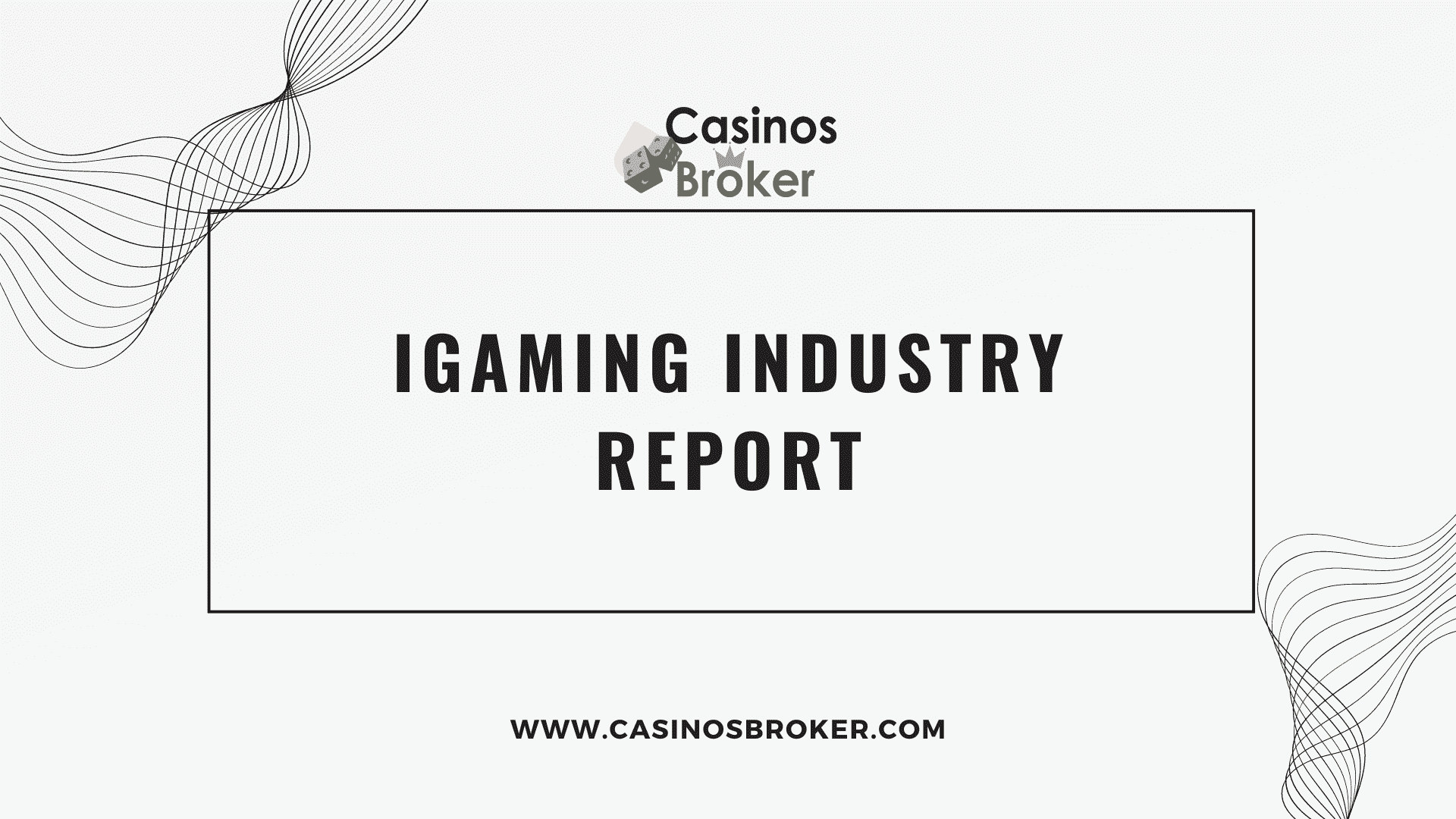Executive Summary
Key highlights and themes in the iGaming market:
The global online gambling or iGaming market has been one of the fastest growing industries over the past decade, fueled by rapid technological innovation, changing consumer behavior, and an increasingly supportive regulatory environment in many key markets. After struggling with legal hurdles and payment processing challenges in its early years, the industry has hit an inflection point and is now poised for explosive growth going forward.
Total global iGaming revenues are projected to reach $127 billion by 2027, expanding at a robust 11.5% compound annual growth rate (CAGR) over the next five years. This represents a monumental market opportunity as consumer demand for online betting and gaming offerings continues soaring across products like online casinos, sports betting, poker, bingo and lotteries.
North America, following the landmark 2018 decision to lift the federal ban on sports betting, has quickly emerged as the largest regulated online gambling market worldwide. The rapid statewide legalization and launch of sports betting and iGaming offerings has unlocked what is expected to be a $40 billion addressable market in the U.S. alone by 2027.
While still a nascent market, online gambling in the U.S. has grown rapidly with 35 states either having already legalized or having active legislation on the books. Top operators like FanDuel, DraftKings, BetMGM and Caesars have invested aggressively to capture early market share through acquisitions, partnerships and heavy marketing/promotions.
Europe remains the most mature iGaming market globally, with well-established regulated online gambling markets in the UK, Italy, Spain, Germany and others. However, the legal landscape is quite fragmented across jurisdictions and many markets employ a “ring-fenced” model requiring locally-based operations. Taxation rates also vary considerably in Europe, from 15-25% of gross revenues.
The Asia-Pacific region represents a large population base and growth opportunity, but most markets are either outright prohibiting online gambling or have vague legal frameworks in place. A few markets like the Philippines and Macau have developed localized online gambling ecosystems, while others like India and Thailand remain in legal limbo despite high underground participation.
Latin American markets like Mexico, Brazil, Peru and Argentina have begun regulating and taxing online gambling, eager to capture revenues from this booming industry. Progress on regulations and licensing has been steady but slow in the region. Still, the potential latent demand across Latin America is expected to make it a lucrative emerging market over the next decade.
Key drivers fuelling the global growth of iGaming include the accelerating usage of mobile devices and apps, rapid adoption of digital/cashless payment methods, changing consumer preferences towards remote/online experiences in the wake of the COVID-19 pandemic, and the overall legalization of sports betting which has provided a gateway for iGaming companies to enter new markets.
This industry is currently experiencing an unprecedented wave of consolidation as operators seek the immense scale required to navigate licensing/regulatory costs and leverage operating efficiencies. Over $32 billion in M&A deal value occurred in 2021 and 2022 alone as major players acquired competitors to expand their global reach and vertically integrate their technology stacks and products.
Emerging market disruptors like the sports streaming platform DAZN are further catalyzing consolidation as media companies pursue strategic tie-ups and exclusive content/betting partnerships to capture a share of the lucrative online gambling audience.
As legal frameworks continue evolving and consumer adoption accelerates, the key themes shaping the future landscape of the global iGaming industry appear to be:
- The convergence of media, sports, betting and online gambling into unified digital entertainment ecosystems
- Expansion into new verticals like eSports betting and cryptocurrency/blockchain-based gambling
- Aggressive consolidation and vertical integration as scale becomes critical
- Technological innovation across areas like live streaming, gamification, analytics and product personalization
- Heightened regulatory scrutiny balanced against the economic incentives of legalization/taxation
Overview of report contents:
This comprehensive report provides an extensive analysis covering all major facets of the global online gambling industry, including:
Section II chronicles the origins and historical evolution of iGaming from its proliferation in the late 1990s through its current state as a rapidly emerging sector poised for exponential growth.
Section III sizes the total global market opportunity in-depth, dissecting it by geographic market, product vertical, consumer device category and providing detailed forecasted growth rates over the next five years.
Section IV assesses the competitive landscape, profiling the major operators vying for market share while analyzing the competitive dynamics at play and emerging disruptors looking to capture a piece of the opportunity.
Section V examines the intense M&A activity that has rocked the industry, exploring the key deals and transactions, types of deal rationale, and prevailing valuation trends and market outlook.
Section VI concludes by outlining the key strategic considerations organizations must evaluate as they seek to capitalize on the rising iGaming industry through various market entry methods and business models while navigating the complex, multi-jurisdictional regulatory environment.
Industry Landscape
History and evolution:
The earliest forms of online gambling can be traced back to the late 1990s, when the launch of internet accessibility opened up new digital avenues for betting shops and casinos that had previously only operated in physical locations. In 1994, the Caribbean nation of Antigua and Barbuda passed the Free Trade & Processing Act, granting licenses to operators looking to open online casinos. This laid the foundations for some of the first real-money online gambling platforms like InterCasino, launched in 1996.
Throughout the late 1990s, the emergence of graphical browsers like Netscape and widespread consumer adoption of the internet spurred an influx of new online gambling websites. Offering casino table games, slots, poker, sports betting and more, these offshore operators were able to bypass restrictive laws in jurisdictions like the United States by leveraging licensing in more permissive countries. Regulation of this new virtual gambling space was minimal and disjointed.
The industry experienced another massive catalyst in 1998 with the launch of the first real-money online poker rooms like Planet Poker. Poker quickly emerged as one of the most popular and lucrative online gambling verticals, fueled by the rising wave of internet connectivity and its ability to facilitate real-time multiplayer games in a virtual environment. Iconic platforms like PartyPoker and PokerStars sprouted up to meet surging demand, attracting millions of online poker players globally and revolutionizing the game.
In its early years, the fledgling iGaming industry operated in a legal grey area in most major Western markets. This began impacting growth prospects as payment solutions like credit card processors and banks grew wary of facilitating transactions in potential violation of anti-gambling laws. The situation came to a head in the mid-2000s as legislative efforts arose in the United States to expressly prohibit online gambling.
In 2006, U.S. President George W. Bush signed the Unlawful Internet Gambling Enforcement Act (UIGEA) which made it illegal for banks and credit card issuers to process payments for offshore online gambling sites, essentially cutting off these operators from the American market. In the aftermath, major public companies like Party Gaming that had been relying heavily on the U.S. market saw their values plummet billions of dollars. It set the industry back significantly.
Seeking a more sustainably regulated operating environment, many operators pivoted and began pursuing legitimate licensing in more permissive jurisdictions. Regulatory bodies like the Malta Gaming Authority, Kahnawake Gaming Commission and Gibraltar Betting & Gaming Association established robust licensing frameworks throughout the 2000s to provide oversight and credibility to online gambling platforms.
Parallel to the U.S. shockwaves caused by UIGEA, legislative changes were also materializing in Europe that would prove catalytic to the industry’s growth going forward. In 2005, the United Kingdom passed the Gambling Act which established formal licensing and tax regimes to regulate all forms of online gambling within its borders. This attracted a flurry of operator interest and investment into building regulated UK-facing online gambling platforms over the coming years.
Other European jurisdictions like France, Spain and Italy later followed the UK’s model by passing legislation to license and tax online gambling sites at varying levels. Within the evolving European Union policy framework, these moves helped create a significantly more stabilized regulatory environment that allowed leading iGaming operators to gain a foothold and drive the market’s expansion throughout the 2010s.
Over this period, technological forces like the proliferation of high-speed mobile broadband, smartphones/tablets and digitization of financial services further accelerated consumer adoption of iGaming. Major operators invested heavily in building out sleek mobile betting experiences, quickly recognizing the channel as the future growth engine.
In 2018, the industry received yet another blockbuster catalyst with the Supreme Court’s decision to overturn the long-standing federal ban on sports betting in the United States. Almost immediately, several U.S. states moved to legalize and regulate sports wagering in both retail and online formats.
This opened up a massive new addressable market for domestic and global iGaming operators. Major players like DraftKings, FanDuel, BetMGM, and Caesars pounced on first-mover opportunities by rapidly launching mobile sports betting platforms, striking partnerships with leagues/media companies, and acquiring tech capabilities where needed through M&A.
As of early 2023, sports betting has been legalized and regulated in 36 U.S. states plus Washington D.C., with additional state legislation in progress. This patchwork state-by-state approach to regulation means operators must navigate a complex web of licensing requirements, taxes and operating guidelines that vary markedly across jurisdictions.
Broadly, the U.S. sports betting market has acted as a powerful catalyst for the expansion of online gambling in America. Once states set up the regulatory and licensing infrastructure to permit online sports books, many then extended legislation to cover other forms of iGaming like online casinos, poker, and lottery as well.
As of 2023, seven U.S. states (New Jersey, Pennsylvania, Michigan, West Virginia, Connecticut, Delaware, and Nevada) have formally legalized and regulated the full gamut of online gambling verticals in addition to sports betting. Many other states are expected to follow suit in the coming years as a way to generate new tax revenues.
The overall evolution of iGaming underscores how this industry has repeatedly demonstrated resilience and invariably found ways to circumvent restrictive laws throughout its existence by seeking out permissive jurisdictions. As regulations modernize and lawmakers increasingly view online gambling as a lucrative revenue stream to be regulated and taxed, the sector’s growth prospects have turned explosively positive.
Regulatory environment by major geography:
North America
United States: Legal at the state level in 36 states + D.C. for sports betting. 7 states with fully legalized online casinos/poker.
Tribal operators have right to offer sports betting/iGaming on tribal lands if state legalizes it and they reach revenue sharing compacts with state governments.
Tax rates vary from 6.75% GGR in Nevada to as high as 51% in New York.
Federal government provides uniform regulatory oversight through agencies like the IRS.
Europe
United Kingdom: Tightly regulated under the UK Gambling Commission (UKGC) which issues licenses for all legal online betting/gaming. 21% tax on gross gambling revenue (GGR). Ring-fenced player pools.
Italy: Regulated and taxed at 25% GGR for most verticals like casino and sports betting. Separate licenses required for each product vertical.
Spain: Regulated national market with 25% GGR tax rate and product licensing model. Regional laws also exist (e.g. Catalonia).
Germany: Federal treaty legalizes online sports betting at 19% VAT. State online casino prohibition up in the air after EU Court rulings.
France: Legal and regulated online sports betting (33% GGR), poker (36.7%) and horse racing (33.8%).
Netherlands: Regulated since 2021 under KOA licensing system for all verticals. 29% gaming tax.
Sweden: Regulated nationally through Svenska Spel. 18% GGR tax on commercial operators.
Other markets: Lithuania, Belgium, Romania, Denmark and others have regulated nationally.
Asia-Pacific
Australia: Online sports betting and casino regulated at national level. Regulatory bodies like ACMA and state territories license operators.
New Zealand: Regulated by Dept. of Internal Affairs. TAB has monopoly on sports betting.
India: No coherent regulation on online gambling. Operating in legal grey area but widely participated.
Philippines: Regulated and licensed domestic online gambling under POGO regime aimed at Overseas market.
Japan: General ban on online gambling. Regulated sports betting expected with future casino resorts.
South Korea: Citizens prohibited from online gambling sites but many access offshore books.
China: Outright ban on online and land-based commercial gambling continues. Some regulated state lotteries.
Latin America
Mexico: Regulated online sports betting and casinos launched in 2022 with central licensing body.
Brazil: National regulation for online sports betting approved in 2022 with 16.6% turnover tax. Other iGaming segments still prohibited.
Argentina: Online sports betting and casino regulated at province level (e.g. Buenos Aires City).
Colombia: Regulated online gambling since 2016 with 15% tax on GGR. Licensed by Coljuegos.
Peru: General regulations for online sports betting, casino, poker approved with 12% tax on net revenues.
Most other markets have either banned or unregulated grey gambling markets persisting.

Market drivers and trends:
Technological Innovation
Mobile device ubiquity: Widespread adoption of smartphones and tablets has been the biggest enabler of the iGaming boom. Mobile is now the dominant channel for online gambling accounting for over 60% of global iGaming revenues as of 2022. Operators have invested heavily in optimizing mobile apps/websites to deliver frictionless gambling experiences on the go.
Live dealer games: Live dealer studios piping in actual human dealers via video stream has created an immersive hybrid online/in-person experience. Combines the authenticity of land-based with the convenience of online.
Gamification & skill gaming: Integration of skill-based gaming elements likeeFighting games, puzzle games, etc into gambling platforms and free-to-play offerings.
Cryptocurrency integration: Growing wave of dedicated crypto casino and sports betting sites lowers transactional barriers and caters to anonymity demands.
VR/AR: While still nascent, immersive technologies like virtual reality and augmented reality possess potential to revolutionize the gambling/betting experience.
Automated products (chatbots, voice, etc): AI driving more automated and naturalized customer interactions across product discovery, support, payments, etc.
Legalized sports data usage: More partnerships between operators and leagues to access official data feeds, driving innovative in-game/live betting experiences.
Shifting Consumer Behaviors
Channel migration to digital/online: COVID-19 accelerated broad societal shift from physical channels and cash to digital channels and cashless payments across numerous sectors, including gambling.
Social & skill-gaming crossover: Demographics from casual social/mobile gaming showing growing crossover propensity into gambling. Platforms incorporating skill game elements.
Burgeoning esports betting: Global esports audience surpassing 500M has generated a boom in demand for wagering on competitive gaming tournaments and matches.
Demand for unique experiences: Consumers, especially younger demographics, gravitating towards unique entertainment experiences enabled through gamification and tech like AR/VR.
Product Innovation
In-game/micro betting explosion: Move beyond pre-game wagers to granular betting on micro events within games/matches fueled by official data partnerships.
Crypto gambling: Frictionless payments, anonymity and expansion of player liquidity pools driving growth of crypto casinos and betting on alt chains.
Pay-to-enter games & NFT gambling: Games selling limited NFTs that act as tournament or jackpot entries. NFTs as digital collectible bets.
Metaverse gambling integrations: Potential to embed casinos/betting into interconnected Metaverse realms over the long-term.
Regulatory Tailwinds
State-level legalization in U.S and LatAm: Opening up massive new regulated markets as states permit online gambling verticals.
European liberalization: Process of transitioning from protectionist monopolies to regulated, competitive markets continued across Europe.
Fiscal benefits: Government incentives from iGaming tax revenues spurring legalization pushes in multiple jurisdictions globally.
Increased regulatory cooperation: Activities like the EU’s work on harmonized regulation and IAGRA global association promoting consistency.

III. Market Sizing
Total Addressable Global iGaming Market (2027 Forecasted Size): $127.2 Billion
Encompasses online sports betting, casinos, poker, bingo, lotteries and other verticals.
Includes revenues from both regulated and unregulated/black markets.
Projected to grow at a robust 11.5% CAGR from 2021-2027 globally based on multiple drivers.
By Geographic Market:
North America: $40.2 Billion (31.6% market share)
- U.S. accounts for ~$37 billion, driven by explosive sports betting legalization.
- Canada an emerging new regulated market as legislation advances.
- Strong 15.2% regional CAGR through 2027 as more states legalize online gambling verticals.
Europe: $32.1 Billion (25.2% market share)
- UK represents largest single market at ~$9 billion due to mature regulation.
- Italy ($5.5B), Germany ($4.8B), France ($3.7B) and Spain ($2.5B) other key markets.
- More gradual 9.8% CAGR as many markets already relatively well-penetrated.
- Regulatory fragmentation and ring-fencing across jurisdictions a limiting factor.
Asia Pacific: $24.3 Billion (19.1% market share)
- Australia ($6.2B) and pockets of demand in Philippines ($3.1B) and Malaysia ($2.8B).
- China remains an outright prohibited market but immense future potential if regulated.
- India ($3.5B) a large growing market operating in legal grey area currently.
- Overall regional growth of 9.5% CAGR expected as jurisdictions modernize regulations.
Latin America: $9.2 Billion (7.2% market share)
- Brazil ($2.4B), Mexico ($2.2B) and Argentina ($1.6B) lead the emerging regulated markets.
- Colombia ($850M) an early mover in LatAm online gambling regulation.
- High 11.7% forecasted CAGR through 2027 based on population demographics and increasing regulation.
Rest of World: $21.4 Billion (16.8% market share)
- Encompasses Africa, Middle East and other assorted markets.
- Significant black/grey market activity persists in many of these regions.
- Overall lower CAGR of 8.9% expected over next 5 years.
By Vertical:
Online Casinos: $70.2 Billion (55.2% market share)
- Includes slots, table games, live dealer games and other casino gaming verticals.
- Healthy 12.8% CAGR fueled by mobile channel growth and new market regulation.
- Mature markets like UK already highly penetrated for online casinos.
Sports Betting: $33.6 Billion (26.4% market share)
- U.S. sports betting market a massive driver reaching $16.8B by 2027 (26% CAGR).
- Europe is largest regional market currently at $11.9B led by UK.
- In-play/micro betting capabilities are accelerating product innovation and engagement.
- Overall global sports betting CAGR of 15.4% over next 5 years.
Poker: $10.2 Billion (8.0% market share)
- Mature vertical that has struggled for growth in recent years in many markets.
- Potential for resurgence through regulated U.S. markets and cross-border liquidity pooling.
- CAGR of 7.8% globally, significantly lagging other fast-growing verticals.
Bingo: $3.9 Billion (3.1% market share)
- Very mature vertical especially across European markets like UK and Spain.
- Growth being fueled by transition from land-based to online/mobile bingo.
- Lower 6.2% projected CAGR out to 2027 based on demographic ceilings.
Lotteries: $4.9 Billion (3.9% market share)
- Increased online/mobile penetration of state lotteries globally a key growth driver.
- But lottery remains heavily protectionist with state/provincial regulated monopolies.
- Overall CAGR of 8.6% based on digitization of purchasing processes.
Other: $4.4 Billion (3.5% market share)
- Emerging verticals like eSports betting, fantasy sports, skill games, etc.
- Also includes unregulated markets and other grey area online gambling not covered above.
- Rapidly growing at a projected 18.9% CAGR out to 2027 as new consumer demand areas arise.
By Device Category:
Mobile: $80.4 Billion (63.2% market share)
- Encompasses all online gambling activity across smartphone and tablet devices/apps.
- Grew at a blistering 22.3% CAGR from 2019-2021 as COVID accelerated mobile adoption.
- Future CAGR projected at 13.8% from 2021-2027 as mobile reaches maturity.
Desktop: $46.8 Billion (36.8% market share)
- All online gambling activity via web browsers on desktop/laptop computers.
- Still a sizable portion of the market but continuing to gradually decline.
- Desktop CAGR of 7.5% over next 5 years as mobile preferencing grows.
While still early, there are some niche emergences of online gambling through other channels:
- Connected TV usage for mobile sports betting projected to grow from $800M to $2.1B by 2027.
- Wearables like smartwatches enabling sports betting interactions showing promise.
- Long-term potential for AR/VR and other immersive experiences like the Metaverse.
Overall, the online gambling industry is experiencing an unparalleled wave of global growth. Rapidly evolving consumer preferences, regulatory tailwinds, and unrelenting technological innovation are combining to create a market of immense scale and potential still relatively early in its lifecycle in many geographies.

Competitive Landscape
Major iGaming Operators:
Flutter Entertainment
- Revenues: $7.4 Billion (FY 2021)
- Key Brands: FanDuel, PokerStars, Betfair, FOX Bet, TVG
- Core Markets: UK, US, Australia
- The world’s largest online gambling company following its transformative $12.2B merger with The Stars Group in 2020.
- Dominant position in global online poker market via PokerStars, the iconic brand it acquired for $4.9B in 2014.
- Aggressively pursuing U.S. market through FanDuel sportsbook and growing online casino/poker footprints.
- Strategic media tie-up with FOX Sports to drive integrated betting audience acquisition.
Entain
- Revenues: $5.1 Billion
- Key Brands: BetMGM, PartyPoker, Bwin, Ladbrokes Coral
- Core Markets: UK, Australia, U.S.
- A major global gambling corporation with a diverse footprint across online and retail.
- Strategic focus on growing BetMGM online sportsbook and casino brand in the U.S. via its joint venture with MGM Resorts.
- Strength in UK market via legacy Ladbrokes and Coral brands offering online/retail betting.
- Acquired large share of Portuguese online gambling market in 2022.
DraftKings
- Revenues: $1.9 Billion
- Key Brands: DraftKings Sportsbook, Golden Nugget Online Casino
- Core Markets: U.S, Canada
- Born from the daily fantasy sports platform acquired by the current public company in 2017.
- Capitalized early on U.S. sports betting legalization by rapidly launching mobile sportsbook and acquiring Golden Nugget Online casino business.
- Strategic media partnerships with outlets like Turner Sports to boost brand visibility.
- Plans to enter additional regulated markets globally after initially focusing on North America.
888 Holdings
- Revenues: $980 Million
- Key Brands: 888casino, 888sport, 888poker, William Hill
- Core Markets: UK, Europe
- UK-based online gambling company with a diverse product portfolio across casino, poker, sports betting.
- Acquired iconic UK brand William Hill’s non-US operations in highly complementary deal for $3.7 billion.
- Well-established and regulated in markets like UK, Spain, Portugal, Romania.
- Pursuing opportunities in newly regulated markets like Ontario, Canada.
LeoVegas
- Revenues: $420 Million
- Key Brands: LeoVegas, RoyalPanda, BetterUIX, Pixel.bet
- Core Markets: Sweden, UK, Italy, Canada
- Leading European mobile-first online casino and sportsbook operator.
- Over 30 brand sites focused on providing seamless mobile gambling experiences.
- First mover in newly regulated markets like Germany and Ontario.
- Leverages proprietary tech platform and data analytics capabilities as a key differentiator.
- Recently acquired for $1.2B by MGM Resorts to boost their online casino presence.
Other Notable Players:
- Caesars (U.S.) – Legacy land-based operator turned online through acquisitions like William Hill.
- Bally’s (U.S.) – Rapidly building iGaming footprint through M&A (Gamesys, Sportnco, etc.)
- Kindred (Europe) – Major online gambling operator with brands like Unibet and 32Red.
- Rush Street (U.S.) – Regional casino company operating BetRivers online sportsbook/casino.
Competitive Dynamics: The global iGaming industry is highly competitive, with a mix of established operators and disruptive new entrants vying for market share across geographies and product verticals. A few key competitive dynamics:
Market Share Consolidation
- Intense competition and race for early mover advantages, especially in newly regulating U.S. markets
- Significant M&A activity as major players acquire competitors to rapidly gain size and capabilities
- Pressure to build out full ecosystem across sports betting, casino, poker, etc to meet customer demand
- Economies of scale becoming critical to absorb costs like licensing fees, taxes, marketing spending
Vertical Integration
- Operators vertically integrating tech stacks, product offerings, content, data, and media assets
- Allows control over full customer experience rather than relying on third-party platforms/suppliers
- Entain acquiring players like BetCity to build proprietary gaming platform
- DraftKings partnering with Sportradar and Gameco to enhance betting data capabilities
Product Innovation
- Sports betting emergence driving huge product innovation around in-play betting, prop bets, etc
- Micro-betting, live streams, official data partnerships fueling new experiences
- Adopting cryptocurrency and blockchain payment capabilities to reduce friction
- Incorporating skill gaming, social features, and gamification into iGaming products
Marketing Arms Race
- Intense spending on advertising, promotions, sponsorships to acquire and retain customers
- Multi-billion dollar marketing commitments from major media/sponsorship deals (e.g. Caesars-ESPN)
- Affiliate marketing a key user acquisition channel, but leading to higher player acquisition costs
- Challenges around building brand equity and differentiation beyond pure promotion arbitrage
Emerging Disruptors:
DAZN
- The sports streaming platform is emerging as a major disruptor in the sports betting landscape
- Struck a $3.3B cash-and-share deal to acquire Entain’s online betting technology in 2022
- Aims to create an immersive platform combining live sports streaming with integrated betting
- Exclusive content tie-ups like UEFA Champions League could drive merged audience
Media Companies
- Firms like Disney/ESPN, Fox, Score Media, Turner aggressively pursuing sports betting integration
- Exclusive data partnerships, branded betting apps, affiliated sportsbook offerings
- Ability to drive massive audiences to gambling through premier sports rights and content
Tribal Operators
- Native American tribes in U.S. rapidly moving into online sports betting and casino verticals
- Tribes can operate online gambling on their lands if states legalize it via compacting
- Emerged as formidable competitors in markets like Michigan, Connecticut, Arizona
Niche Crypto Gambling Sites
- Platforms like Stake.com, Cloudbet, Bushcloud gaining traction with crypto-centric audiences
- Immutable payment rails, liquidity sharing, anonymity enabling regulatory arbitrage
- Ability to accept more forms of payment compared to fiat-based traditional operators

M&A Activity Review
Historical M&A Activity:
2022: ~$10 Billion total deal value, 45 transactions
- Major deals: DraftKings ($1.56B) acquisition of Golden Nugget Online Gaming, Bally’s ($2.7B) acquisition of Gamesys Group
2021: Record ~$22.5 Billion+ total deal value, 35 transactions
- Flutter’s $12.2B acquisition of The Stars Group to form the world’s largest online gambling company
- MGM Growth Properties acquisition of Vici Properties REIT in $17.2B deal to consolidate gaming property portfolios
2020: $3.2 Billion total deal value, 20 transactions
- Noteworthy deals included Caesars ($3.7B) acquisition of William Hill, Bally’s ($2.8B) twin acquisitions of Bally’s brand and Gamesys
2019: $4.8 Billion total deal value, 18 transactions
- Major transactions included Flutter’s $6B merger of Betfair/FanDuel businesses
2018: $1.1 Billion total deal value, 12 transactions
- Landscape still relatively muted before sports betting legalization catalyzed deals in coming years
Key Drivers of Recent Deal Activity:
- U.S. market entry – Companies Racing to gain early access to rapidly opening online sports betting and iGaming markets through acquisitions (e.g. Entain/BetMGM, Caesars/William Hill)
- Product/Vertical integration – Major operators integrating vertically to control their full tech stack and product suite (e.g. DraftKings/GNOG, Bally’s/Gamesys)
- European consolidation – Mature European markets seeing continued consolidation between operators (e.g. 888/William Hill, Flutter/Stars Group)
- Strategic partnerships – Convergence of content, media, data driving partnerships/acquisitions between gambling firms and media companies (e.g. DAZN/Entain)
- Native operator expansion – Tribal casino operators in U.S. expanding into online through M&A (e.g. Seminole Tribe acquiring sports betting platforms)
Types of Deals:
- Outright acquisitions – Largest deal type as companies acquire competitors and targets outright to gain market position, technology, brands/IP
- Joint ventures – Partnership deals common for market entry where two companies jointly invest in a new combined entity (e.g. BetMGM)
- Minority investments – Larger companies taking minority equity stakes in emerging operators or tech enablers to gain early access
- Vertical integration – Acquisitions to fold in different layers of proprietary tech stacks and software/content offerings
- Asset/IP acquisitions – Acquirers picking up specific brands, customer databases, software platforms, etc instead of whole companies
Valuation Trends & Outlook:
- Lofty valuations persisting based on vast growth opportunities in newly regulated markets
- Acquisition multiples commonly ranging 5-10x revenue for target companies based on growth profile
- Public company stocks in sector valued richly at 5-10x forward revenue multiples on average
- Ample supply of investment capital from private equity, venture capital and other funds being deployed
- Rising interest rates and normalization of public markets could moderate valuations over time
- But influx of media/entertainment companies entering the fray could reignite premium valuations
- Continued high appetite for transformative M&A given scale advantages and limited time to capture market share in new regions
Overall, the online gambling industry has experienced a tidal wave of consolidation over the past five years. Operators are rapidly seeking to acquire scale, vertically integrate their product stacks, and gain early access to newly regulated markets globally through acquisitions of competitors and partnerships. While frothy valuations have persisted amid high growth, the next phase will likely see a continued flurry of M&A driven by media and cross-sector convergence plays.

Strategic Considerations
Potential Opportunities Across Verticals/Markets:
Sports Betting
- Immense growth runway as more U.S. states legalize online sports wagering
- Capturing steadily increasing demand for in-game betting, micro-markets
- Integrating official sports data to enable unique betting experiences
- Cross-selling casino/poker verticals to established sports betting user bases
Online Casinos
- Major upside from transitioning land-based casino players to remote channels
- Penetrating large population centers like India, China long-term if regulations permit
- Diversifying into new live dealer studio experiences, crypto gambling, etc
- Capitalizing on gaps left by withdrawal of offshore unregulated operators
Poker
- Potential resurgence by pooling player liquidity across regulated U.S. markets
- Gamifying and cross-pollinating with broader casino gameplay and social platforms
- Targeting up-and-coming player demographics in regions like India, Latin America
Bingo
- Primarily an online channel migration opportunity from physical halls/retailers
- Creating intersections between bingo and iGaming through convergent platforms
- Innovative gameplay and formats to attract demographics beyond traditional base
Lotteries
- Facilitating the digitization of lottery





